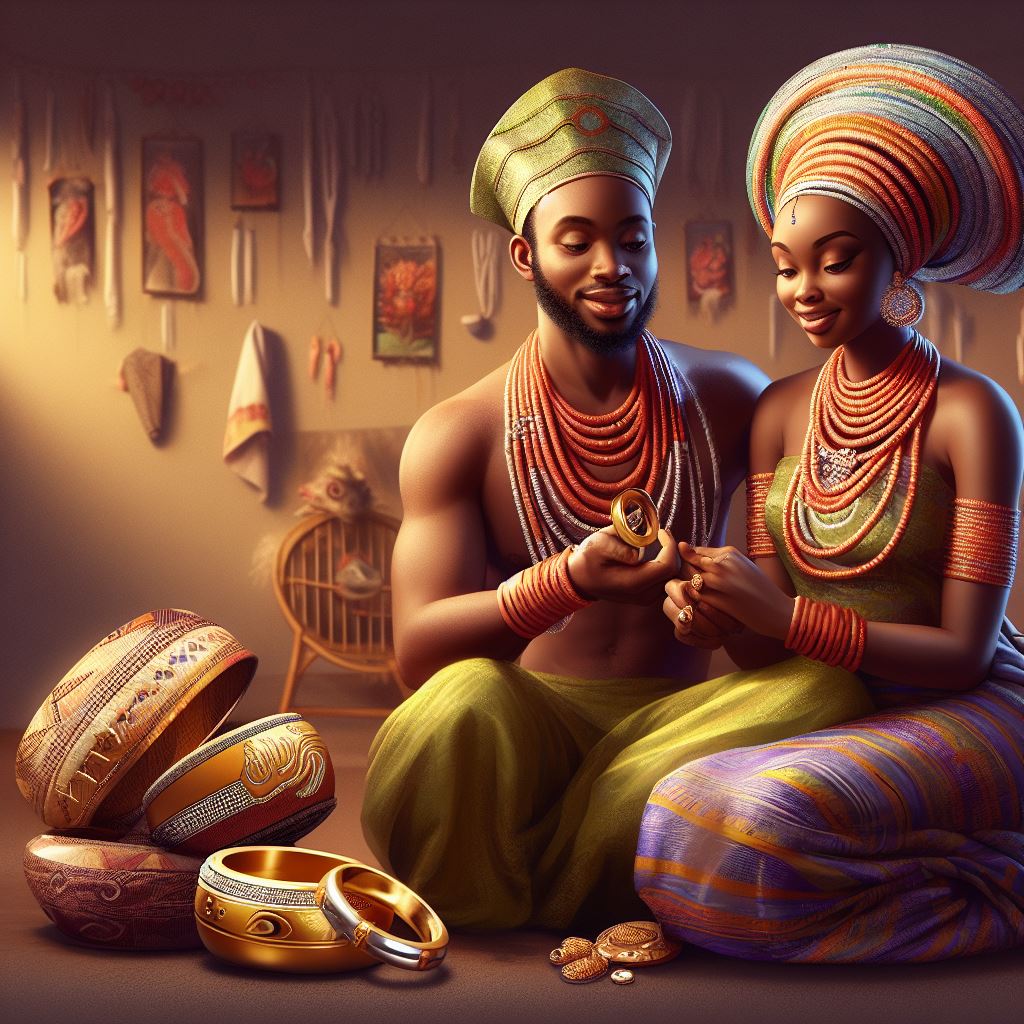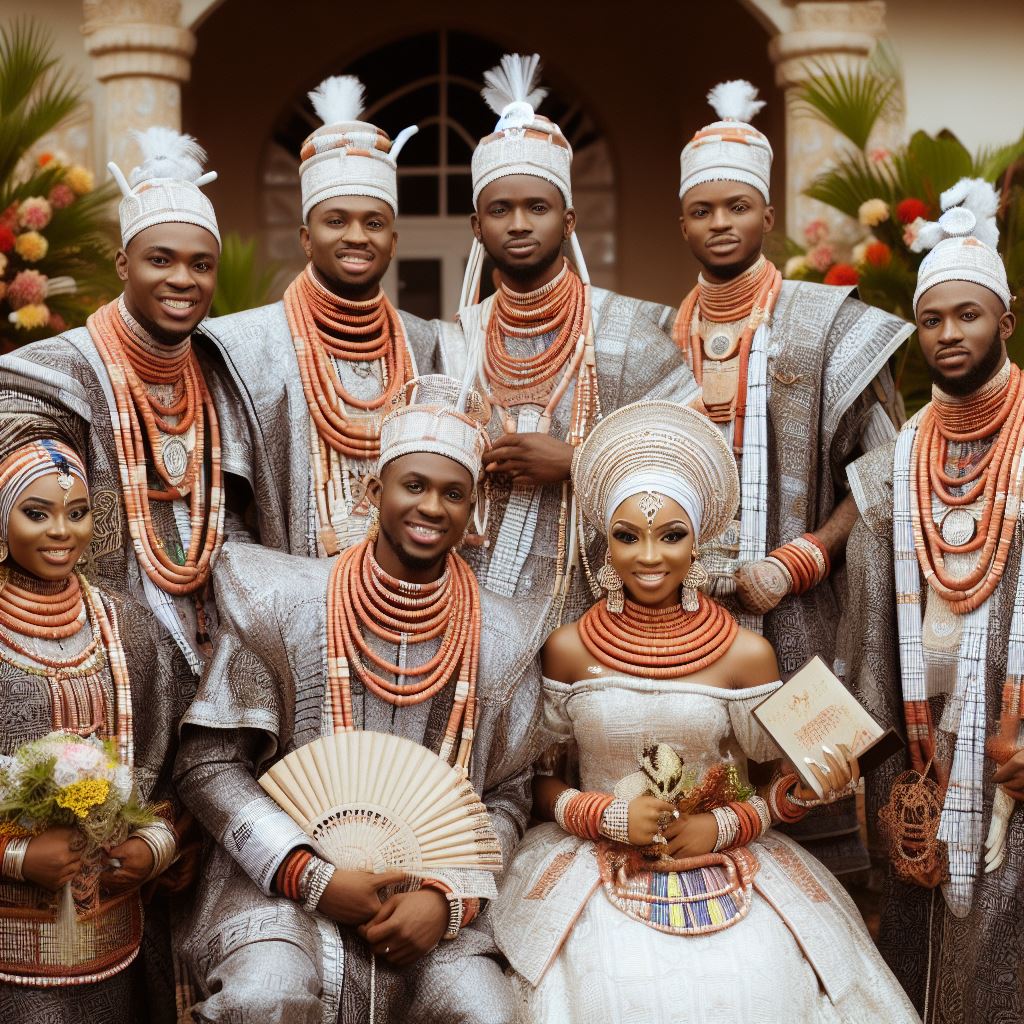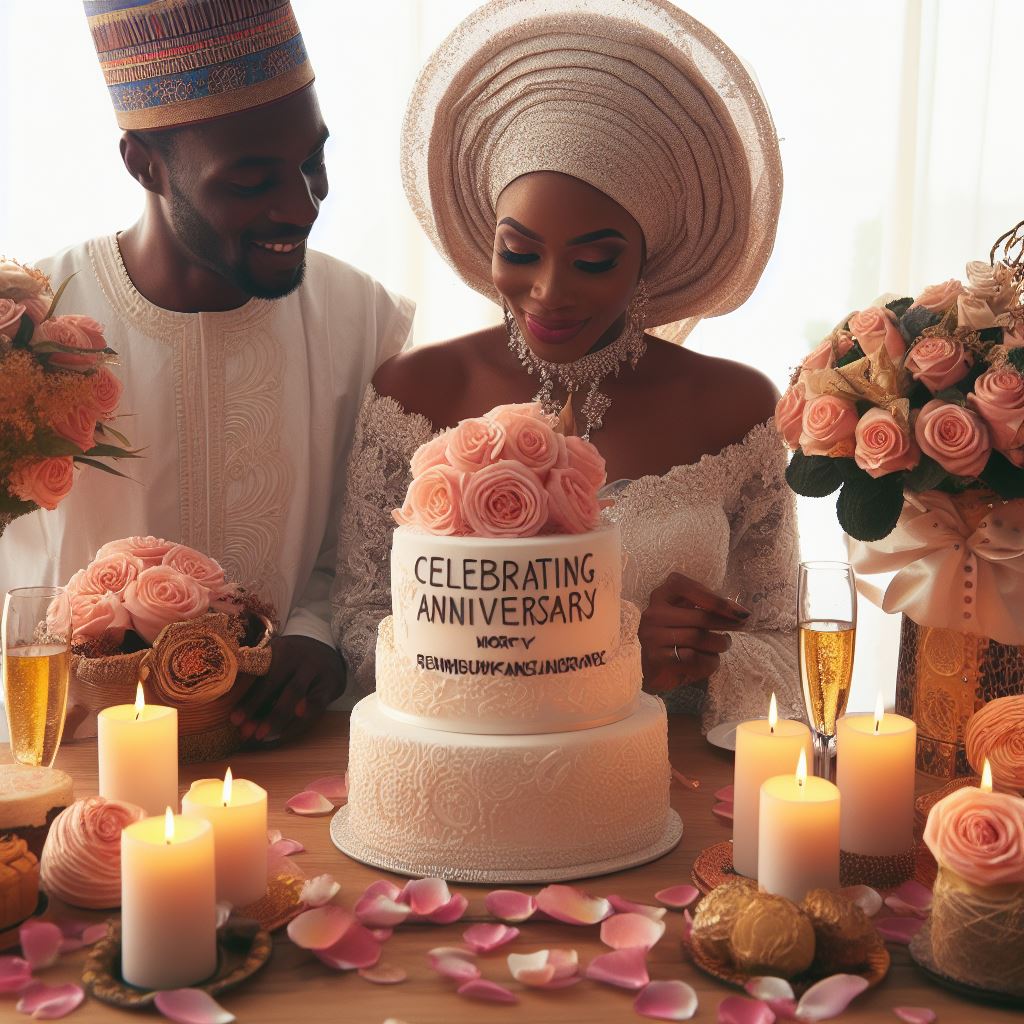Introduction
Rings in Nigeria hold profound spiritual and cultural significance, reflecting the rich heritage of this vibrant nation.
This blog post aims to unravel the mysteries and traditions associated with Nigerian rings, delving into their various roles in ceremonies, daily life, and beyond.
Let’s embark on this captivating journey to explore the hidden gems of Nigeria’s cultural tapestry through the lens of these ornate circles.
Purpose of the Blog Post
In this section, we will explore the following aspects of Nigerian rings:
- The Cultural Fabric: How rings are deeply interwoven into Nigerian culture and traditions.
- Spiritual Significance: The mystical and religious aspects of rings in local practices.
- Rituals and Ceremonies: The pivotal role of rings in weddings, initiations, and other significant events.
- Adornment and Fashion: How rings serve as expressions of identity and personal style.
- Contemporary Trends: Modern interpretations and adaptations of traditional ring customs in Nigeria.
Historical Background
Origins of Ring-Wearing in Nigeria
Ring-wearing in Nigeria dates back centuries, with roots deeply embedded in the country’s rich history and culture.
Use of Rings in Traditional Nigerian Ceremonies
Rings hold profound cultural significance, often playing pivotal roles in traditional ceremonies.
These ceremonies include weddings, rites of passage, and ancestral rituals.
Evolution of Ring Symbolism in Nigerian Culture
The symbolism of rings in Nigerian culture has evolved over time.
Originally, they represented unity, love, and commitment.
As time passed, rings began to carry added symbolism.
They signified social status, authority, and even protection against malevolent spirits.
In more recent history, the design and materials used in rings have also transformed.
Traditional materials like ivory and wood have been replaced by gold, silver, and gemstones.
Today, rings in Nigeria may still symbolize love and commitment in weddings, but they also serve as potent cultural emblems and fashion statements.
This evolution reflects how deeply intertwined rings are with Nigeria’s spiritual and cultural fabric.
Their journey through history is a testament to the enduring significance of these small, yet powerful, ornaments in Nigerian culture.
Read: Financial Implications of Marriage-Based Citizenship in Nigeria
Spiritual Significance of Rings
Discussion of the belief in spiritual powers embedded in rings
- Traditional religious practices in Nigeria often associate rings with spiritual powers.
- Cultural beliefs in Nigeria attribute protective and healing powers to rings.
The use of rings in spiritual ceremonies and rituals
Rings play a central role in various religious ceremonies in Nigeria, connecting individuals with higher powers.
Nigerians believe these rings hold powerful spiritual and cultural significance, serving as conduits for communication, protection, and healing.
Traditional religious practices and tribal rituals incorporate rings to establish a link between the physical and spiritual realms, harness spiritual energies, and facilitate communication with ancestors and spirits.
In addition, these rings are often believed to possess protective and healing properties, offering spiritual safeguards and guidance against harm and evil spirits.
Their role extends to pivotal life events, including traditional marriage ceremonies, where the exchange of rings symbolizes a sacred bond, uniting two individuals and their families.
Furthermore, in initiation ceremonies of secret societies or cults, rings signify membership and align individuals with the group’s beliefs.
Rings are also viewed as enhancing spiritual rituals by connecting individuals with higher powers, amplifying prayers, and facilitating a closer relationship with the divine.
These sacred objects often feature intricate designs and symbols that boost their spiritual effectiveness.
Rings serve as a profound reminder of Nigeria’s spiritual heritage and cultural traditions, embodying the rich tapestry of beliefs within the society.
Read: The Emotional Journey of Pursuing Citizenship by Marriage
Cultural Significance of Rings
The role of rings in traditional Nigerian weddings
- Engagement rings symbolize a promise and commitment between the couple.
- Wedding bands signify the union and eternal love between the bride and groom.
Cultural expectations surrounding the exchange and wearing of rings
Nigerian culture places deep significance on the wearing of rings, driven by societal norms and rich traditions.
Rings have a profound role in traditional Nigerian weddings, symbolizing love, commitment, and heritage.
- Engagement rings convey the promise and commitment between the couple.
Groom to bride, it signifies his intent to marry and the public declaration of love. - The wedding band, or “ring of eternity,” signifies eternal love and the lifelong commitment of both partners.
It serves as a constant reminder of their marital vows and enduring love. - Rings hold cultural expectations, publicly displaying marital status and affirming fidelity.
- Various ring types carry specific meanings within Nigerian culture.
Traditional rings feature intricate designs and symbols representing cultural heritage and spiritual beliefs. - Rings may include ancient symbols for fertility, prosperity, or protection, believed to bring blessings and ward off negativity.
In fact, rings in Nigeria are powerful symbols of love, commitment, and cultural heritage.
Their exchange during traditional weddings signifies both personal commitment and adherence to cultural traditions, an integral part of marital life.
This expectation reflects the deep-rooted values of Nigerian society, preserving cultural heritage and spiritual beliefs across generations.
Read: Ensuring a Smooth Process: Tips for Marriage Citizenship

Contemporary Trends and Adaptations
Influence of Western culture on Nigerian ring traditions
The increasing influence of Western culture has had a significant impact on Nigerian ring traditions.
As Nigeria becomes more connected to the global community, Western jewelry designs are being embraced and integrated into local traditions.
Traditional ring designs are now being influenced by Western fashion trends and materials.
The introduction of gold and silver metals, which were not commonly used before, has become more prevalent in Nigerian ring designs.
Western symbols and motifs, such as hearts and infinity signs, are now found in Nigerian rings, blending local and international cultures.
Nigerians are also adopting Western practices such as engagement rings or using rings as fashion accessories.
Although influenced by Western culture, Nigerians still maintain their own unique cultural elements in their ring designs.
Modern ring designs and materials used in Nigeria
Modern ring designs in Nigeria have evolved to incorporate a wide range of materials and styles.
Nigerian artisans are experimenting with various metals such as gold, silver, platinum, and even titanium.
These metals are used to create intricate designs that showcase the creativity and craftsmanship of Nigerian jewelry makers.
In addition to metals, gemstones like diamonds, rubies, and emeralds are now commonly seen in Nigerian rings.
Engravings and carvings are also prevalent, featuring traditional symbols and motifs that hold cultural significance.
Contemporary Nigerian rings are elegant, bold, and unique, reflecting the wearer’s personal style and cultural heritage.
Adaptation of the significance of rings in Nigeria’s changing society
With Nigeria’s changing society, the significance of rings has started to adapt and evolve.
While rings traditionally symbolized marital status and spirituality, they now serve various purposes.
In modern Nigerian society, rings are seen as fashion accessories that express personal style and enhance one’s outfit.
Both men and women wear rings to make fashion statements and showcase their individuality.
Rings have also become a form of self-expression and a way to display cultural heritage and pride.
Furthermore, rings are now commonly used to mark significant milestones and achievements in one’s life.
For example, individuals may buy rings to celebrate graduations, promotions, or other personal accomplishments.
The changing significance of rings aligns with Nigeria’s diverse and dynamic society, embracing both tradition and modernity.
In review, contemporary Nigerian ring traditions are experiencing the influence of Western culture, resulting in innovative designs and the use of new materials.
These adaptations reflect Nigeria’s changing society, where rings have become more than just symbols of marital status and spirituality.
They now serve as fashion accessories, expressions of personal style, and celebrations of significant milestones.
Despite the modern influences, Nigerian artisans continue to incorporate their unique cultural elements into their ring designs, maintaining a strong connection to their heritage.
Read: Children & Marriage-Based Citizenship: What You Should Know
Discover More: A Guide to Hausa Marriage Toasts: Tradition Meets Today
Conclusion
Recap of the key points discussed in the blog post
- Rings hold great significance in Nigerian spirituality and culture.
- They serve as symbols of marital status, wealth, and power.
- Traditional rings often feature intricate designs and are made from precious metals.
- Religious and spiritual beliefs play a significant role in ring symbolism.
- Nigerian traditional weddings feature elaborate ring ceremonies.
- Modern trends are incorporating Western-style engagement and wedding rings.
- Rings connect individuals to their heritage and serve as cultural symbols.
Final thoughts on the enduring importance of rings in Nigerian spirituality and culture
Rings in Nigeria go beyond mere adornments; they carry deep spiritual and cultural significance.
They unite individuals, families, and communities while preserving traditions and connecting people to their roots.
Despite modern influences, rings continue to be revered symbols of love, commitment, status, and spirituality in Nigeria.
Their enduring importance highlights the timeless beauty and value they hold for generations to come.




